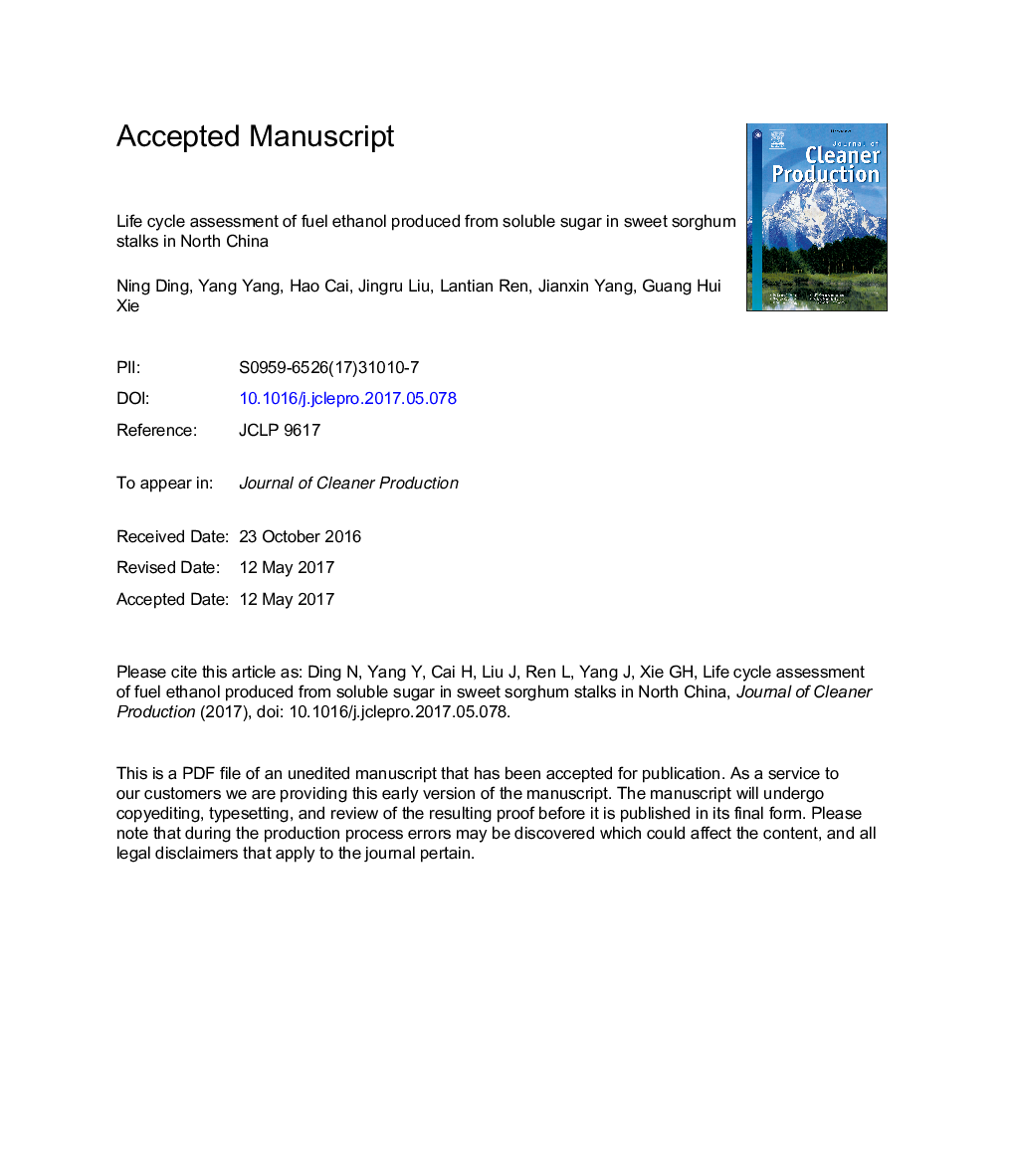| Article ID | Journal | Published Year | Pages | File Type |
|---|---|---|---|---|
| 5480841 | Journal of Cleaner Production | 2017 | 26 Pages |
Abstract
This paper describes the results of a life cycle assessment of sweet sorghum stalk (SSS)-based ethanol in North China. We determined the environmental performance of SSS-based ethanol and examined its advantages and disadvantages, as compared to gasoline, focusing on the life cycle of feedstock production, transportation, ethanol production and distribution, and use. The GREET transportation model and the method developed by the Centre of Environmental Sciences at Leiden University (CML method) were used to compile a life cycle inventory and to assess environmental impacts. Results indicate that SSS-based ethanol has advantages in terms of energy consumption, with a well to wheel decrease of 85% fossil energy and 44% global warming potential, as compared with gasoline. Abiotic depletion potential, acidification potential, and photochemical ozone creation potential were also 50-90% lower than in the case of gasoline, while human health toxic potential was 36% lower. However, SSS-based sorghum did not have advantages over gasoline in terms of life cycle cost, land use, and water consumption. Results indicate that such an evaluation cannot just consider a few types of environmental impacts, researchers should promote systematic and comprehensive life cycle assessment of ethanol to guide the development of an energy strategy for China.
Related Topics
Physical Sciences and Engineering
Energy
Renewable Energy, Sustainability and the Environment
Authors
Ning Ding, Yang Yang, Hao Cai, Jingru Liu, Lantian Ren, Jianxin Yang, Guang Hui Xie,
